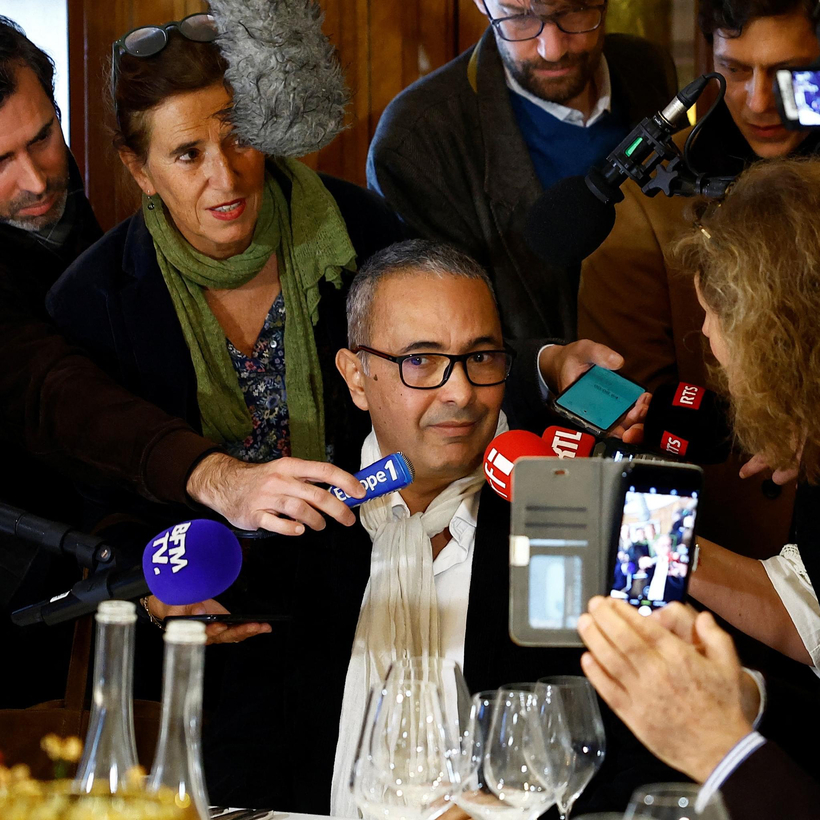The winner of France’s top literary prize has been accused of basing his novel on the life of a patient who was treated by his psychiatrist wife.
Kamel Daoud was awarded the Prix Goncourt last month for Houris. Its central character is a 26-year-old woman whose throat was cut by an Islamist militant during Algeria’s 1992-2002 civil war. The woman survives but loses her voice and communicates using a speech aid.

